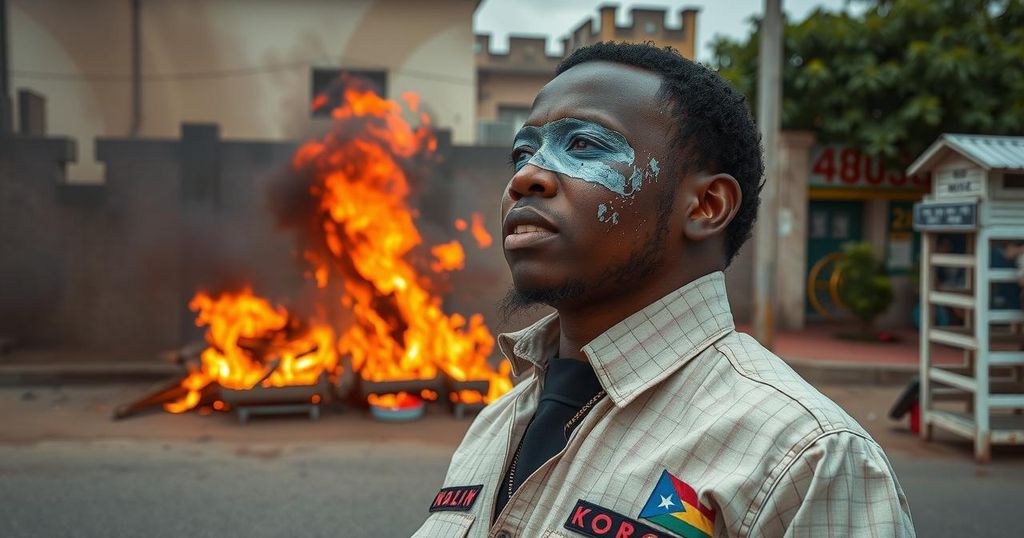Mozambique has witnessed significant violence, resulting in at least 21 deaths and many injuries following the controversial confirmation of Frelimo’s election victory. Protests have led to extensive damage to public property, and armed groups have attacked police stations. The unrest is fueled by allegations of electoral fraud from exiled opposition leader Venâncio Mondlane, who continues to assert his claim to the presidency while the ruling party seeks dialogue amidst the chaos.
In Mozambique, violence has erupted following the controversial confirmation of the ruling Frelimo party’s victory in the recent presidential elections. Within just 24 hours, the government has reported at least 21 fatalities, including two police officers, amidst widespread unrest. The country’s highest court upheld Frelimo’s claim to victory, further inciting public outrage that has already led to weeks of disturbances and protests.
The Interior Minister, Pascoal Ronda, disclosed that there were 236 reported incidents of serious violence, resulting in over 25 injuries, including 13 among law enforcement. Armed groups have attacked police stations and public infrastructure, prompting the arrest of more than 70 individuals. Protests led to significant destruction, with shops and public buildings vandalized, including looting and arson.
Fighting between police and protesters caused a near-total shutdown in the capital, Maputo, where many citizens stayed home to avoid the chaos. The conflict has stretched into northern cities where opposition support is more pronounced, compounding fears that the death toll could rise, following claims from exiled opposition leader Venâncio Mondlane, who insists the elections were rigged.
Mondlane’s supporters are demanding accountability, as he argues the judiciary has sanctioned electoral fraud. He expressed intent to establish a “People’s Constitutional Court” to assert his claim to the presidency, challenging the legitimacy of the court’s ruling. In contrast, Frelimo’s candidate, Daniel Chapo, who garnered just over 65% of the vote, has extended an olive branch in his victory speech, indicating a willingness to engage in dialogue with opposition members.
The recent election in Mozambique, held on October 9, has resulted in significant controversy following the ruling party’s victory amidst widespread allegations of electoral irregularities. Frelimo, which has wielded power since Mozambique’s independence in 1975, faced protests and claims of fraud that ignited unrest in various regions. This turmoil also coincided with the holiday season, intensifying the challenges faced by ordinary citizens who experienced severe disruptions to their daily lives and access to basic services.
In summary, Mozambique is currently experiencing profound unrest following the disputed electoral outcome that has claimed at least 21 lives in just one day. The violent backlash against Frelimo’s confirmed victory is exacerbated by widespread allegations of electoral fraud, fueling protests and vandalism in capital Maputo and other regions. The situation remains volatile as political tensions continue to escalate, leaving many citizens demanding justice and transparency in the electoral process.
Original Source: www.lemonde.fr






